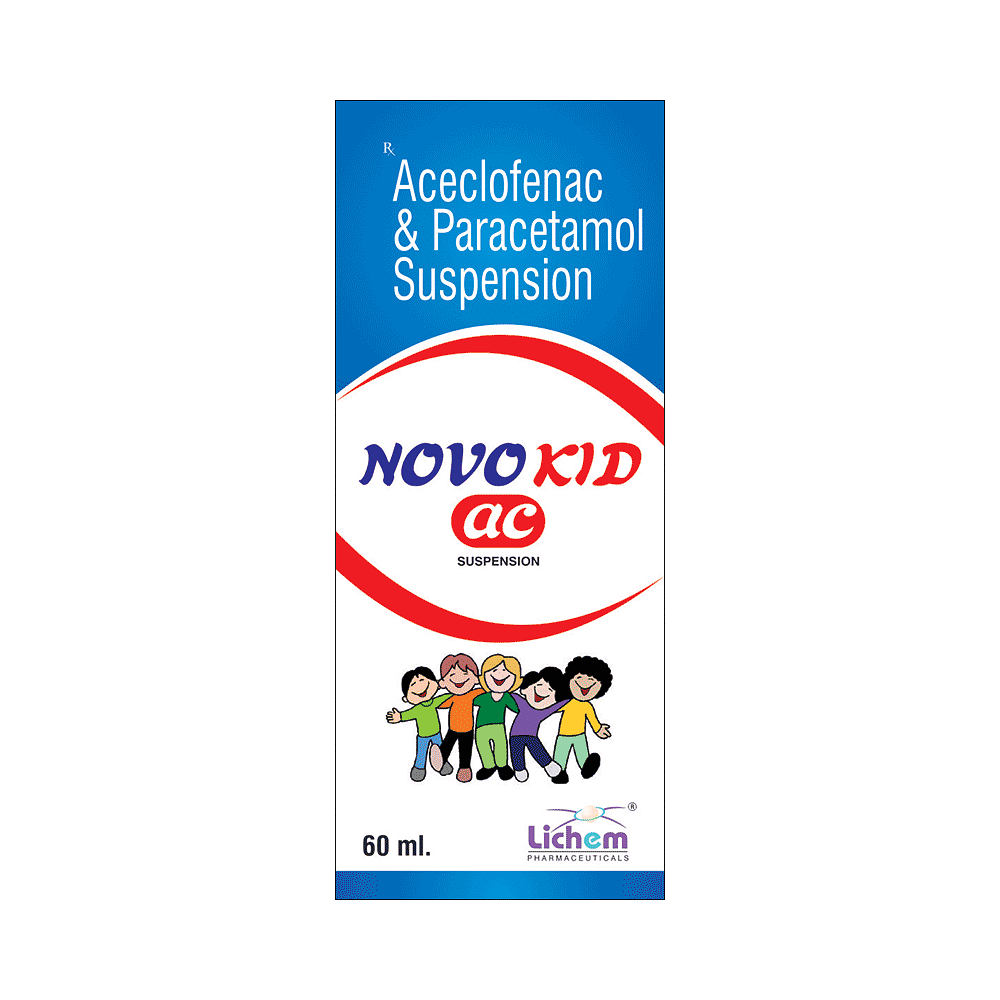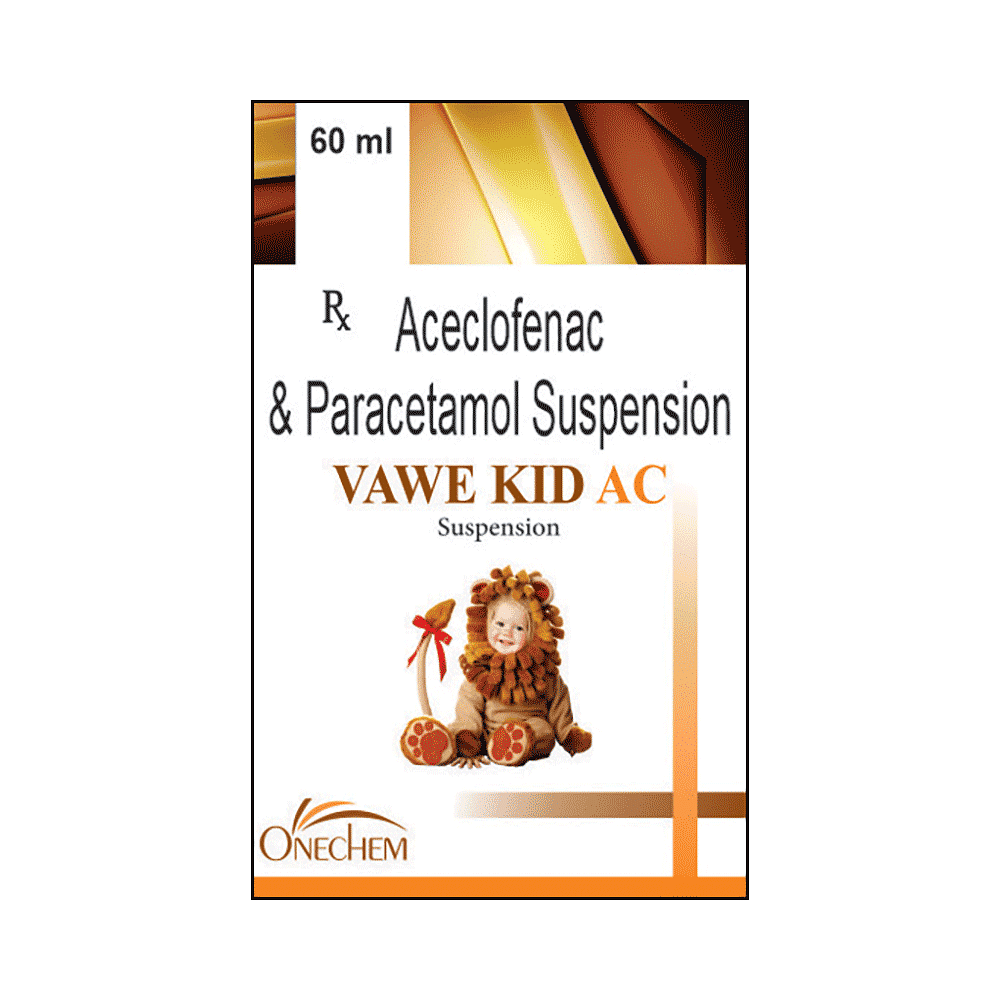
Aclorest P Oral Suspension
Manufacturer
Avita Laboratories Pvt Ltd
Salt Composition
Aceclofenac (50mg) + Paracetamol (125mg)
Key Information
Short Description
Aclorest P Oral Suspension helps lower body temperature (fever) and reduce pain and inflammation (redness and swelling) both in infants and children.
Dosage Form
Oral Suspension
Introduction
Aclorest P Oral Suspension is a medication that helps to lower body temperature (fever) and reduce pain and inflammation (redness and swelling) in infants and children. It is available in the form of an oral suspension.
Directions for Use
Give this medicine after food to avoid abdominal discomfort in your child. Maintain a log of your child's temperature. If you do not see any improvement, contact your child's doctor for advice.
How it works
Aclorest P Oral Suspension comprises two active ingredients: Aceclofenac and Paracetamol. These medicines work by blocking the action of chemical messengers responsible for pain, fever, and inflammation (redness and swelling).
Quick Tips
Give this medicine after food to avoid abdominal discomfort in your child. Maintain a log of your child's temperature. If you do not see any improvement, contact your child's doctor for advice. Keep a track of the dose and the frequency in which you have given this medicine to your child. This will help prevent overdosing. Practice self-care tips like: giving plenty of fluids to your child, giving your child a balanced diet, encouraging your child to have optimum sleep, and stopping the medicine and consulting your child's doctor in case your child exhibits allergic rash or stomach pain soon after taking this medicine.
Related Medicines

Rapi Oral Suspension

Acewell P Oral Suspension

Ang Plus Oral Suspension

Novo AC Kid Oral Suspension

Cottace P Oral Suspension

Analgiawin Oral Suspension

Aclopic P Oral Suspension

Acycov P Oral Suspension

Arismol-P Oral Suspension

Vawe Kid AC Oral Suspension
Frequently asked questions
Can I increase or decrease the dose of Aclorest P Oral Suspension for my child by myself according to the severity of illness?
No, it is not recommended to alter the dose of the medicine without consulting a doctor. While increasing the dose without proper judgment may lead to toxicity, decreasing it may cause recurrence of symptoms. It is crucial to follow your doctor’s guidance regarding dosage changes.
How much Aclorest P Oral Suspension should I give to my child?
The dose prescribed by your doctor will depend on your child's specific condition and weight. It is crucial to adhere to the prescribed dosing schedule for safe and effective recovery.
How should Aclorest P Oral Suspension be stored?
Aclorest P Oral Suspension should be stored at room temperature, in a dry place, away from direct heat and light. Always keep all medicines out of the reach and sight of children to avoid accidental ingestion.
Can all children be given the same dose of Aclorest P Oral Suspension?
No. The dosage of Aclorest P Oral Suspension is not standardized for every child. It is crucial to follow your doctor's instructions and never administer any dose without consulting a doctor.
When will my child feel better?
Recovery time may vary depending on the severity of the infection, but generally, your child may begin feeling better after a few days to weeks of consistent medication use. Continue administering the medicine as prescribed by your doctor and note the improvement in symptoms.
Are there any serious side effects of this medicine for my child?
While generally well-tolerated, Aclorest P Oral Suspension may cause serious side effects like persistent vomiting, severe swelling, or decreased urine frequency. If you notice such symptoms in your child, seek immediate medical attention.
Are there any specific contraindications associated with the use of Aclorest P Oral Suspension?
Aclorest P Oral Suspension is not recommended for individuals with known allergies to its components or excipients, or those who are allergic to other painkillers (NSAIDs). In addition, it's advisable to avoid using this medication in patients with a history of stomach ulcers, active or recurrent bleeding. Patients with heart failure, high blood pressure, and liver or kidney disease should also avoid this medication.


